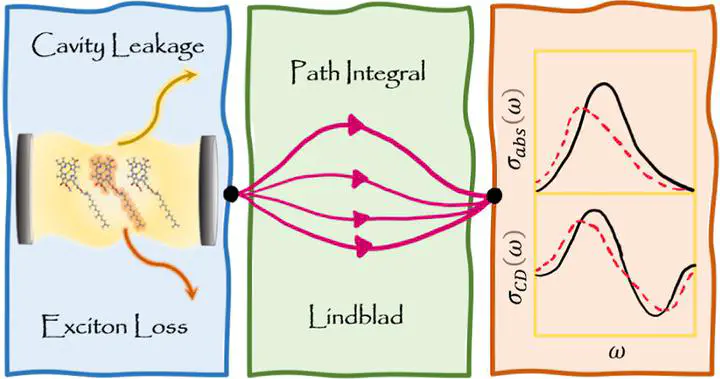Impact of Loss Mechanisms on Linear Spectra of Excitonic and Polaritonic Aggregates

Abstract
The presence of loss mechanisms governed by empirical timescales can profoundly affect the dynamics in molecular systems, leading to changes in their spectra. However, incorporation of these effects along with the system’s interaction with the thermal dissipative environments proves to be challenging. In this work, we demonstrate the possibility of utilizing the recently developed path integral Lindblad dynamics (PILD) method to study the linear spectra of molecular aggregates. PILD presents a uniquely powerful simulation technique for retaining the effects of the vibrations in a numerically exact manner through the Feynman–Vernon influence functional while incorporating the effects of losses in an empirical manner using the Lindbald master equation. As illustrations of this technique, we provide examples taken from chiral excitonic and polaritonic aggregates for which we simulate both the absorption spectra and circular dichroism (CD) spectra. We demonstrate that the effect of loss on particular states can differ not just on the basis of the symmetries of the state but also on the basis of complicated “interactions” of the structured dissipative environments with the system and its loss mechanisms. Due to the different selection rules between the absorption and CD spectra and the relative intensities and broadening of the peaks, the two linear spectra together give an interesting insight into the contributions of the various eigenstates to the correlation functions. While the focus here is on linear spectroscopy, it should be possible in the future to use PILD to study multidimensional spectra under loss mechanisms as well.